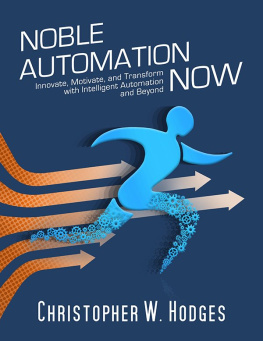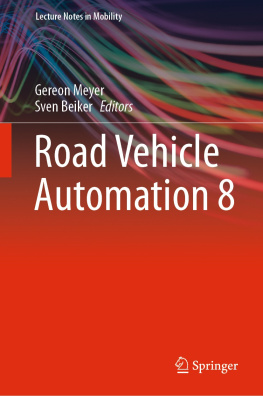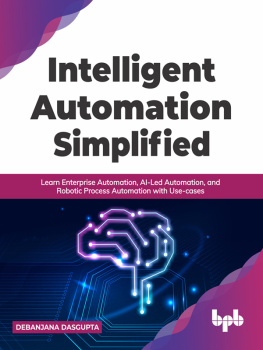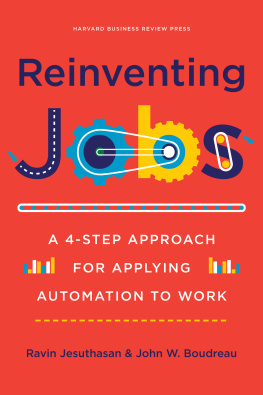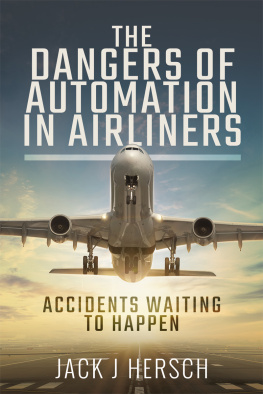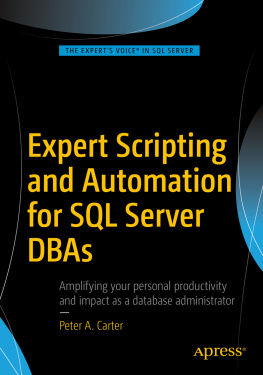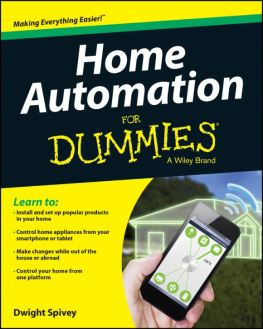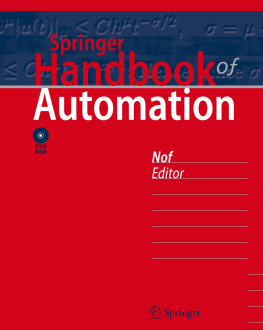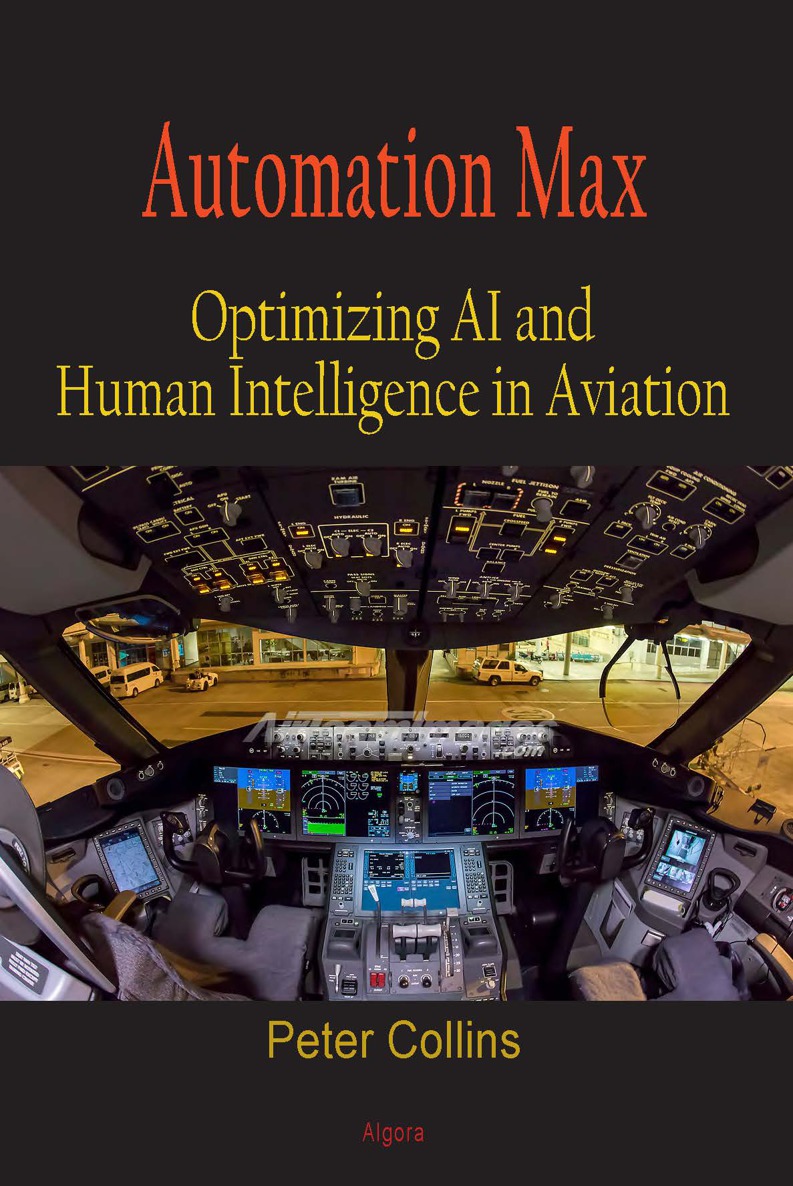Automation Max
Automation Max
O ptimizing AI
and Human Intelligence
in Aviation
Peter Collins
Algora Publishing
New York
2020 by Algora Publishing.
All Rights Reserved
www.algora.com
No portion of this book (beyond what is permitted by
Sections 107 or 108 of the United States Copyright Act of 1976)
may be reproduced by any process, stored in a retrieval system,
or transmitted in any form, or by any means, without the
express written permission of the publisher.
Library of Congress Cataloging-in-Publication Data
Names: Collins, Peter (Peter H.), 1957- author.
Title: Automation max: optimizing AI and human intelligence in aviation /
Peter Collins.
Description: New York: Algora Publishing, [2020] | Summary:
Automation-Max outlines the reasons why we should not be making such
hasty moves towards fully automated passenger aircraft and instead why
we should start adopting new ideas and concepts to further improve our
already high standards of aviation safety. In an analysis of the last 10
years of accidents, the author highlights where the human/computer
weaknesses lie. He explores the vulnerability of the human pilot in the
aviation world, and then he takes the debate to the next stage by asking
how we need to redesign the interface between pilot and machine
Provided by publisher.
Identifiers: LCCN 2020040901 (print) | LCCN 2020040902 (ebook) | ISBN
9781628944310 (trade paperback) | ISBN 9781628944327 (hardback) | ISBN
9781628944334 (pdf)
Subjects: LCSH: AirplanesAutomatic controlSafety measures. | Flight
control. | Human-machine systems. | AeronauticsHuman factors.
Classification: LCC TL589.4 .C57 2020 (print) | LCC TL589.4 (ebook) | DDC
629.132/6028563dc23
LC record available at https://lccn.loc.gov/2020040901
LC ebook record available at https://lccn.loc.gov/2020040902
Printed in the United States
To Chantalle, Matthew, Andrew and HAL
Chapter 1: Digital Odyssey
A few too many fatal aviation accidents occurred in 2018, going against the expected trend of ever-increasing commercial flight safety. That topic, with an investigation into a Lion Air 737 Max 8 crash that occurred on October 29, 2018, dominated the news program that evening, along with a story on the passing of Douglas Rain. Rain was the actor who provided the voice of HAL in Stanley Kubricks thought-provoking film 2001: A Space Odyssey . What an incredible director and what interesting films! I double-checked the viewing schedule for that evening and got lucky when I found out that they had amended the program to re-screen 2001 .
I remembered being intrigued when I first saw that film and frustrated that I couldnt really understand the full meaning behind it. It seemed I would have a chance to see if I could glean anything more, now that I had greater experience in life. Well, I didnt fly for Pan-Am, the airline depicted shuttling passengers to the moon, but I was a captain on the 747-400 and retired before the Pan-Am 001 moon flights became an option on the pilot transfer list. It is notable how the film has turned out to be so accurate in its predictions. This was almost certainly down to the perceptive contributions of a certain Arthur C. Clarke, who wrote the original novel the present day space station is foreseen; so too is the space shuttle and even a video link system to allow the main protagonist, Dave, to talk to his family through a satellite connection. Furthermore, as I was musing on the scene of Dave talking to his daughter, my solitude was interrupted by a video-chat call from my son.
Just as I was sharing with him this amusing coincidence, my sons face froze and a helpful warning came up, informing me that I had been disconnected. Thank goodness for the message; I would never have guessed. What might have been more helpful would have been a post-call voice message stating, I detected that a connection fault was imminent and I re-directed to solve the problem. Beware, this could happen at a future time in your current spatial location which may coincide with a critical moment that requires communications and for which I may not have any re-routing options.
Well, actually, an announcement like that would eventually become quite annoying and to be fair to the people that built the internet, they have done a pretty good job, designing various clever protocols that intelligently control the routing and dispersion of our data over the World Wide Web. If a packet of data gets lost in the network, it is re-routed or re-transmitted so it will eventually reach its target destination, albeit a few milliseconds late. The vast majority of these problems occur at router pinch points throughout the system or at the end of the line where your device is connecting to the network. If your device is downloading a movie at the same time as handling a conversation over a video chat, the weak link is exposed.
Anyway, back to the film. No, the connection doesnt get dropped with Daves daughter and yes, the anti-gravity system works just fine for the stewardess. The toilets take a bit of getting used to and the food doesnt look too appetizing, but for a film made in 1968, the predictions are astoundingly accurate. Granted, some of this was borrowed from the research undertaken for the NASA moon-shots and indeed the first navigation system I used in the early Boeing 747s had three of these lunar units.
Neil Armstrong, Buzz Aldrin and Michael Collins all went to the moon with just one of these Inertial Navigation Systems (INS) which was solely responsible for guiding the spacecraft through the three dimensions of space to intercept an object moving at 2,288 miles per hour. On the 747, they gave us three of these INS units as a safety measure in case one went wrong its no good having two, because you dont know which one went wrong.
Soon Dave is on his way to Jupiter in another spaceship and we are introduced to HAL, with his unique style, spookily voiced by Rain. The film to me really seemed to be about this onboard computer system that ran the ship, negating the need for extra crew, much like a commercial pilot does today with no requirement for a Flight Engineer, a Navigator or a Radio Operator. And, as I explained to my son in 21st century parlance, theres also a monolith that hangs around, sparking off re-birth and stuff.
Arthur C. Clarke predicted the future well. But how are we doing with computer technology in aviation today? The film producers have made many jumps of logic to get HAL up to a very high standard of both ability and reliability, somehow getting us through the present day barrier that has made it so difficult to achieve the expected decline in the number of commercial aircraft accidents.
Well come back to 2001 later, but for now lets compare some of those accident statistics. 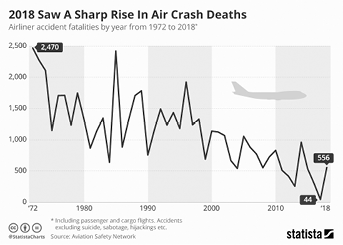
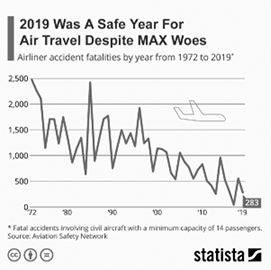
1. Accident data 2018/9 from Statista
Starting in 2018, quoting Statista , there was a sharp rise in air crash deaths for the year. This book examines that trend to see if there are any clues as to where deficiencies are occurring and how we might improve and/or reinforce any weak points in the system.
Generally, we can consider the table below to represent a realistic indication as to what risks face us in life on our planet at the moment. The odds are approximately one in 188,364 that you will be killed in an aircraft accident.



